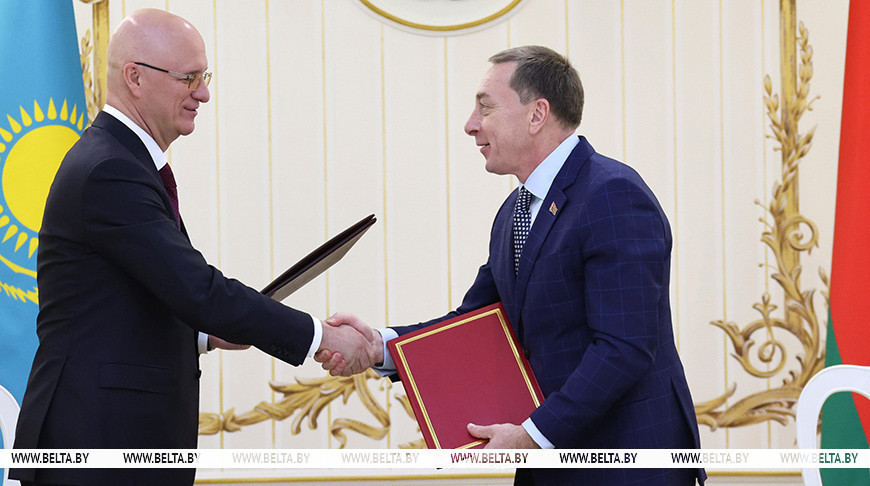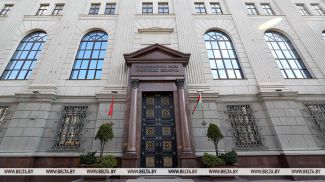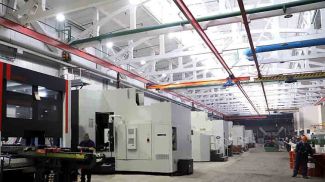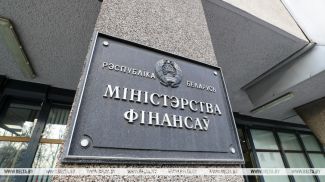
Roman Sklyar and Nikolai Snopkov
MINSK, 31 May (BelTA) – Belarus and Kazakhstan have great cooperation prospects across the board, First Deputy Prime Minister of Kazakhstan Roman Sklyar said at the 18th meeting of the Belarus-Kazakhstan Intergovernmental Commission on Trade and Economic Cooperation, BelTA has learned.
The agricultural industry is an important area of bilateral cooperation. The two countries jointly produce combine harvesters, tractors, dump trucks and other types of products.

“Belarus has built an effective agricultural development model; its per capita output of agricultural products is on par with developed countries. At the same time, the agro-industrial complex of Kazakhstan is one of the fastest growing sectors of the economy, it helps ensure the country’s food security. Here our interaction would be very useful,” Roman Sklyar said.
He believes that cultural and humanitarian cooperation helps bridge the gap between the two peoples.
“In Kazakhstan, the Center for Belarusian Language, History and Culture has been operating at Gumilyov Eurasian National University since 2012. Dozens of research and innovative projects are implemented. Such events as cultural days make a great contribution to strengthening cultural ties between Kazakhstan and Belarus “Of course, all this needs to continue,” noted the first deputy prime minister of Kazakhstan.

Roman Sklyar added that academic partnerships are an important vector of bilateral relations. “There are some promising initiatives in the field of vocational education. It is necessary to continue and expand holding inter-regional business investment forums, exhibitions, fairs, concerts, sporting events, film festivals. In general, Kazakhstan and Belarus have broad prospects for joint work in all areas. I am confident that our meeting today will offer a great opportunity for us to discuss the most important issues of cooperation in all promising areas,” the first deputy prime minister of Kazakhstan noted.
The agricultural industry is an important area of bilateral cooperation. The two countries jointly produce combine harvesters, tractors, dump trucks and other types of products.

“Belarus has built an effective agricultural development model; its per capita output of agricultural products is on par with developed countries. At the same time, the agro-industrial complex of Kazakhstan is one of the fastest growing sectors of the economy, it helps ensure the country’s food security. Here our interaction would be very useful,” Roman Sklyar said.
He believes that cultural and humanitarian cooperation helps bridge the gap between the two peoples.
“In Kazakhstan, the Center for Belarusian Language, History and Culture has been operating at Gumilyov Eurasian National University since 2012. Dozens of research and innovative projects are implemented. Such events as cultural days make a great contribution to strengthening cultural ties between Kazakhstan and Belarus “Of course, all this needs to continue,” noted the first deputy prime minister of Kazakhstan.

Roman Sklyar added that academic partnerships are an important vector of bilateral relations. “There are some promising initiatives in the field of vocational education. It is necessary to continue and expand holding inter-regional business investment forums, exhibitions, fairs, concerts, sporting events, film festivals. In general, Kazakhstan and Belarus have broad prospects for joint work in all areas. I am confident that our meeting today will offer a great opportunity for us to discuss the most important issues of cooperation in all promising areas,” the first deputy prime minister of Kazakhstan noted.













